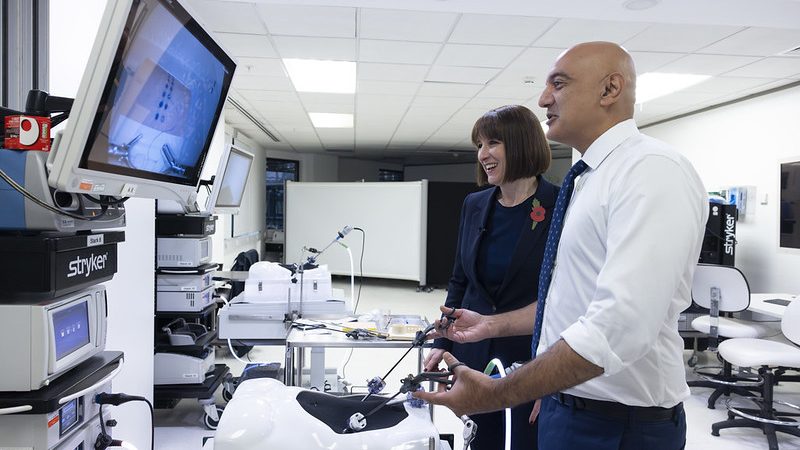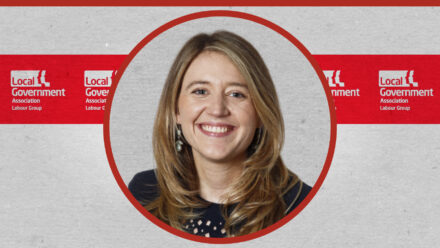
She did it. Despite apparently being boxed into a corner, the Chancellor has managed to find a staggering £40bn of tax rises.
This will pay for a significant boost to public services. We can debate whether this means the end of austerity; I think there is a good case it is.
But given the damage done to public services over the last decade, just writing these words is an enormous relief. The government should be praised for its boldness here.
READ MORE: MPs, unions and readers overjoyed at NHS and NMW cash – but some fear for public services
The cash injection delivered by the Budget will help stabilise public services. Local government, battered by cuts of late, is the Budget’s deserved winner.
Higher capital spending is particularly welcome too. Public services are undercapitalised, especially the NHS, as Lord Darzi’s recent review found.
More cash alone won’t fix silos, waste and sticking plasters
However, ending austerity is a necessary and not sufficient condition for a public service renewal.
Additional spending alone will not fix many of the long-standing problems with public services. Services that work in silos and fail to join-up, wasting taxpayers’ money and causing misery for citizens forced to repeat their story to different arms of the state.
Services that intervene too late and fail to prevent problems arising in the first place. Services that operate on an inefficient and outdated transactional basis, robbing citizens of dignity and services of valuable assets.
As the last Labour government learnt, how services are run can be just as important as the funding they receive. Despite putting record amounts into services such as the NHS, Blair grew impatient with progress and moved in office to develop a bold public service reform agenda.
Labour needs Blair’s reforming zeal, but with a different gospel
 But with real progress on reform only made after the 2005 election, his ‘reform pivot’ came too late to achieve all he wished to. And for all the talk of a ‘decade of national renewal’, I don’t think anyone in Labour is planning for a third term. It’s clear this government must move from spending to reforming public services much more quickly than New Labour.
But with real progress on reform only made after the 2005 election, his ‘reform pivot’ came too late to achieve all he wished to. And for all the talk of a ‘decade of national renewal’, I don’t think anyone in Labour is planning for a third term. It’s clear this government must move from spending to reforming public services much more quickly than New Labour.
That’s why the government must now develop and implement a cross-cutting approach to public service reform. Demos’ Future Public Services Taskforce has been developing a new reform agenda around three core principles.
Where New Labour had targets, we should use missions to drive collaboration and long-termism. Where New Labour practised command-and-control, we should liberate professionals through a new wave of devolution. And where New Labour encouraged competition between service providers, we need new structures to join-up public services in localities.
READ MORE: Who key Budget policies are aimed at – and the electoral strategy they signal
The reforming zeal of Blair but a different gospel. A similar recipe but different ingredients, sourced from innovative practice across the country. In Gateshead, the pioneering approach of the ‘liberated method’, which seeks to free frontline workers to build genuine relationships with citizens. In Barking, a pioneering new model of joined-up public services. In Wigan, efforts to build a whole new relationship between local citizens and the council.
The Budget promises ‘experimentation’ to innovate and reform
 There are encouraging signs that the government is listening. Buried in the Budget document, we learn that the government’s approach to the Spending Review will be driven “mission-led, technology-enabled, and reform-driven”. Welcome too is the announcement of a £160m ‘Public Sector Innovation and Reform fund’, which will “…focus on experimentation and learning”.
There are encouraging signs that the government is listening. Buried in the Budget document, we learn that the government’s approach to the Spending Review will be driven “mission-led, technology-enabled, and reform-driven”. Welcome too is the announcement of a £160m ‘Public Sector Innovation and Reform fund’, which will “…focus on experimentation and learning”.
Georgia Gould MP, the Cabinet Office’s minister for public sector reform, can be expected to spearhead these efforts, drawing on a pioneering reform agenda as the Leader of Camden Council, particularly in relation to children’s services.
The Budget should buy goodwill from public sector workers, who have been toiling in cash-strapped services for too long. It should also put out some of the most immediate and pressing fires. In doing so it has built a solid platform on which to build an ambitious reform agenda.
But the government cannot afford to rest on its laurels and it must use the next phase of the Spending Review to drive that reform agenda. Failure to do this risks voters asking at the next election: ‘where did all the money go?’
Read more of our Budget 2024 coverage:
-
- Live updates and stream as tax and spend policy revealed
- Labour’s Budget 2024: All the policies announced in advance
- ‘No fiscal rule is perfect. But this one means welcome investment’
- Fiscal rules: What is Reeves changing – and why does it matter?
- Bus fare cap row rumbles on as Burnham sticks to £2 cap
- Sam White: ‘Budget 2024 leaves Reeves facing nine circles of fiscal hell’
- Budget bus fare row: ‘The £2 cap was a rare policy that dramatically improves lives – it’s so cheap people talk about it’
- Budget 2024: National Minimum Wage set for record hike and Living Wage to rise 6.7%
- Budget 2024: ‘How Rachel Reeves will turn the page on the Tories’ economic illiteracy’
- ‘How Labour councils can help Starmer and Reeves deliver their growth mission’
- ‘A proper Labour Budget’: MPs, unions and readers overjoyed at NHS and NMW cash – but some fear for public services
- Autumn Budget 2024: Read Chancellor Rachel Reeves’ full Budget speech
- SHARE: If you have anything to share that we should be looking into or publishing about this story – or any other topic involving Labour– contact us (strictly anonymously if you wish) at [email protected].
- SUBSCRIBE: Sign up to LabourList’s morning email here for the best briefing on everything Labour, every weekday morning.
- DONATE: If you value our work, please donate to become one of our supporters here and help sustain and expand our coverage.
- PARTNER: If you or your organisation might be interested in partnering with us on sponsored events or content, email [email protected].




More from LabourList
‘Labour won’t stop the far right by changing leaders — only by proving what the left can deliver’
‘Cutting Welsh university funding would be economic vandalism, not reform’
Sadiq Khan signals he will stand for a fourth term as London Mayor